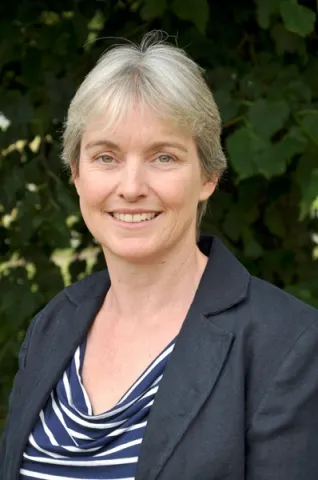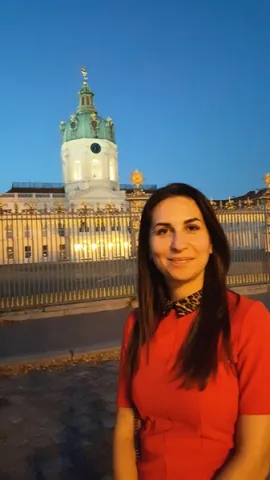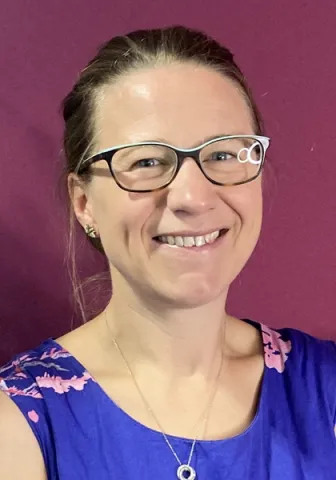Project overview
The kidneys are 2 small fist sized organs which sit in the back. Kidneys clean the blood. They take away extra water and waste and turn it into urine or ‘wee’.
Chronic kidney disease (CKD) is a long-term condition. In CKD, the kidneys do not work as well. More than 1.8 million people in England are known to have CKD. It is thought there may be 1 million more who have not yet been diagnosed. This is because early CKD has no symptoms. So it's important to test for CKD in people who might have it. This includes people with diabetes, high blood pressure, and a family history of CKD.
People with CKD are more likely to have, and die from, heart attacks and strokes. For a small group of people their CKD will get worse over time. This could mean that they need ‘renal replacement therapy’ (RRT). This is where a machine (dialysis) or a kidney transplant (someone else’s kidney put into them in an operation) does the job of the failed kidneys. This allows the person to survive. These treatments are very expensive. Along with transport to treatment centres they cost the NHS around £780m every year. Having CKD can also reduce a person’s quality of life.
People who have, or might have, CKD should have the protein in their urine measured. This is a good way to see if kidneys are damaged. It can be used along with a blood test result to work out a ‘risk score’. This score can help to show which people are at most risk of their CKD getting worse. This means that they can be offered medicines and told about possible changes to their lifestyle and diet that might help reduce their risk. The score can also be used to reassure people who have a low risk.
We want to understand why working out a person’s risk of CKD is not always done in general practice (GP) surgeries. To do this, we will first interview 20-30 GPs and practice nurses. These are the people who would do the risk scores for patients. They will come from GP practices across Wessex and Leeds. We will then hold 4-5 focus groups with GP practice teams, including GPs and nurses, but also pharmacists, practice managers, and reception/administration staff. We will ask them about how procedures could be improved to make sure CKD patients have their risk measured.
This information will help us to work out how to improve the way that we measure risk in CKD. We will then plan a second study to test a new process. This new process will be developed from what we find out in this study.
Chronic kidney disease (CKD) is a long-term condition. In CKD, the kidneys do not work as well. More than 1.8 million people in England are known to have CKD. It is thought there may be 1 million more who have not yet been diagnosed. This is because early CKD has no symptoms. So it's important to test for CKD in people who might have it. This includes people with diabetes, high blood pressure, and a family history of CKD.
People with CKD are more likely to have, and die from, heart attacks and strokes. For a small group of people their CKD will get worse over time. This could mean that they need ‘renal replacement therapy’ (RRT). This is where a machine (dialysis) or a kidney transplant (someone else’s kidney put into them in an operation) does the job of the failed kidneys. This allows the person to survive. These treatments are very expensive. Along with transport to treatment centres they cost the NHS around £780m every year. Having CKD can also reduce a person’s quality of life.
People who have, or might have, CKD should have the protein in their urine measured. This is a good way to see if kidneys are damaged. It can be used along with a blood test result to work out a ‘risk score’. This score can help to show which people are at most risk of their CKD getting worse. This means that they can be offered medicines and told about possible changes to their lifestyle and diet that might help reduce their risk. The score can also be used to reassure people who have a low risk.
We want to understand why working out a person’s risk of CKD is not always done in general practice (GP) surgeries. To do this, we will first interview 20-30 GPs and practice nurses. These are the people who would do the risk scores for patients. They will come from GP practices across Wessex and Leeds. We will then hold 4-5 focus groups with GP practice teams, including GPs and nurses, but also pharmacists, practice managers, and reception/administration staff. We will ask them about how procedures could be improved to make sure CKD patients have their risk measured.
This information will help us to work out how to improve the way that we measure risk in CKD. We will then plan a second study to test a new process. This new process will be developed from what we find out in this study.



